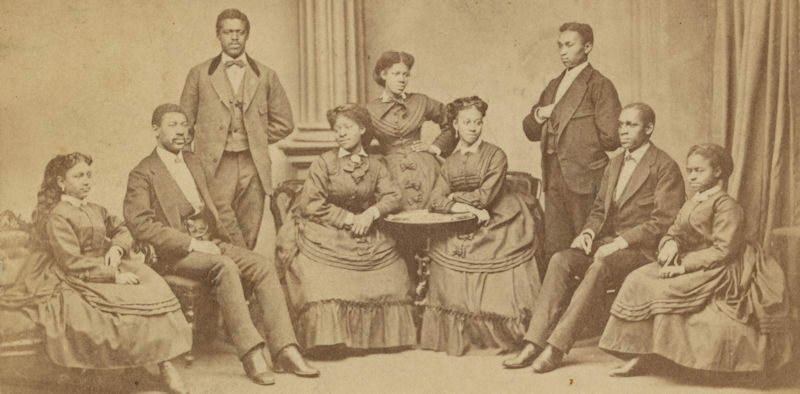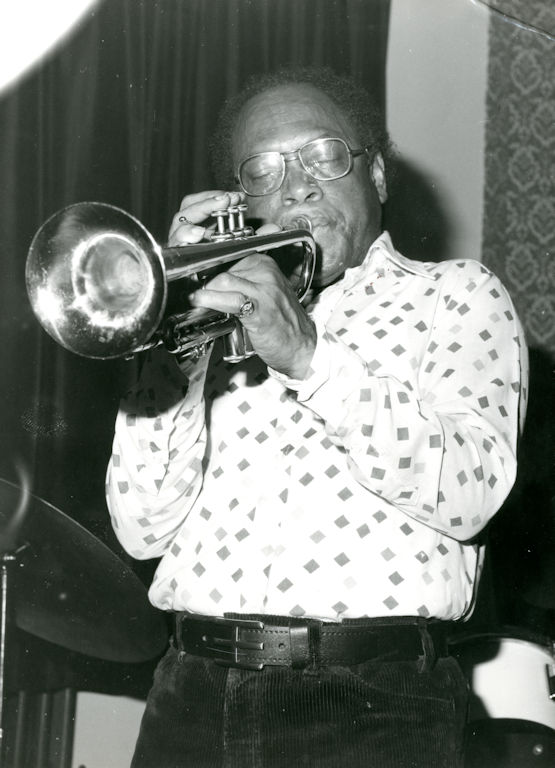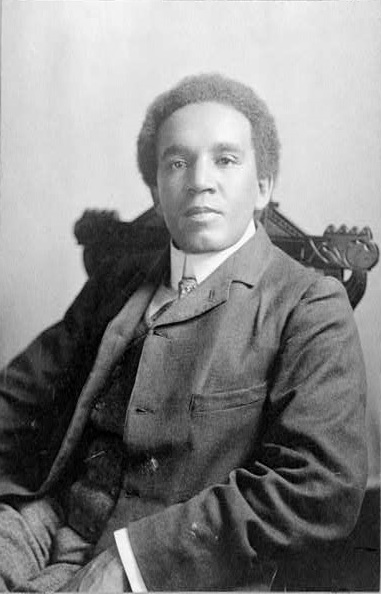
Hackney’s well established African and Caribbean communities have used music as an opportunity for personal expression, and to challenge issues of discrimination and racism. Nightclubs, radio stations, sound systems and record shops were established to meet the cultural, social and economic needs of the communities.
Through stories of musical innovation, distribution and enjoyment, the ‘Roots, Rhythms and Records’ series celebrates the impact of the London Borough of Hackney on music in area and beyond. In this post, we focus on some of the pioneering African and Caribbean musicians that influenced the borough.
Who were some of the first African heritage musicians?
The first person of African descent in Britain whose image and story survives today is a musician. John Blanke was a trumpeter who played at the royal courts of both Henry VII (1457–1509) and Henry VIII (1491–1547).
By the 1800s there were around 20,000 people of African or Asian heritage living in England. Some were employed as domestic servants who had basic musical training, and some worked as musicians or entertainers. These included street musicians entertaining passers-by with fiddle playing, singing and dancing.
Born in London, Samuel Coleridge-Taylor (1875–1912) was a well-known classical music composer of Sierra Leonean and British heritage. His Song Of Hiawatha (1900) was a national sensation, and was regularly performed at events in Hackney during the early 1900s.
However, having sold his publishing rights for £15,15s, Coleridge-Taylor benefited little from this success. The resulting public outcry when his financial situation was revealed after his death contributed to the creation of the Performing Rights Society in 1914, protecting the financial interests of musicians.
What was the African-American impact on music in Hackney?
Most British audiences first experienced authentic ‘Black’ music through African-American musical traditions. In the late 1800s pioneering African-American musicians, and musicians influenced by African traditions, started to perform in the UK. These early groups and performers were celebrated by the press for the depth and intensity of their music.
The Fisk Jubilee Singers gave the British public its first mass exposure to African-American music. They were students at Fisk University, a historically African-American private university in Nashville, Tennessee. Slavery in the United States was abolished in 1865 and the group formed in 1871 to tour and raise funds for the university.
They arrived in Britain in 1873, and performed at Hackney Downs Chapel and the Hackney Juvenile Mission as part of their tour. They made such an impact that the mission’s manager was inspired to form the ‘East London Jubilee Singers’ – a choir of thirty white youths to raise money for the mission.
The Hackney Empire provided a performing space for many African-American musicians in the early 20th century. African-American variety performer Belle Davis (c.1873–c.1929) was a recording pioneer and a Music Hall star. She performed at the Hackney Empire at least six times during her extensive tours throughout Europe during the early 1900s. As well as being a famous entertainer, she was a director, choreographer and she also appeared in film.
Jazz Pioneers
Music of African origin grew in popularity from the early 1900s onwards because of a growing international following of American Jazz. However, in the 1930s American bands faced restrictions on visiting Britain. This created an opportunity for African and Caribbean musicians to take to the stage and share the sounds of West African Highlife and Calypso with Londoners.
Harry Beckett (1935–2010) moved to the UK from Barbados in 1954. His home in Stoke Newington was visited by a number of famous jazz musicians and many of them collaborated with him. His Caribbean roots influenced his musical compositions and created a new sound for jazz music in Britain.

Hackney Museum 2022.44.
Coming soon! In the next installment of our series exploring African and Caribbean music in the borough, we’ll be exploring the role of music in the lives of Hackney’s Windrush Generation.
Content for this blog featured in the exhibition ‘Roots, Rhythms & Records The sounds and stories of African & Caribbean music in Hackney‘ at Hackney Museum 2 October 2018 – 16 March 2019.


